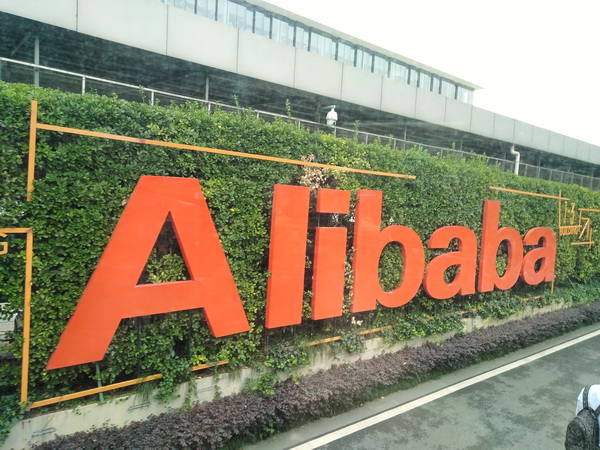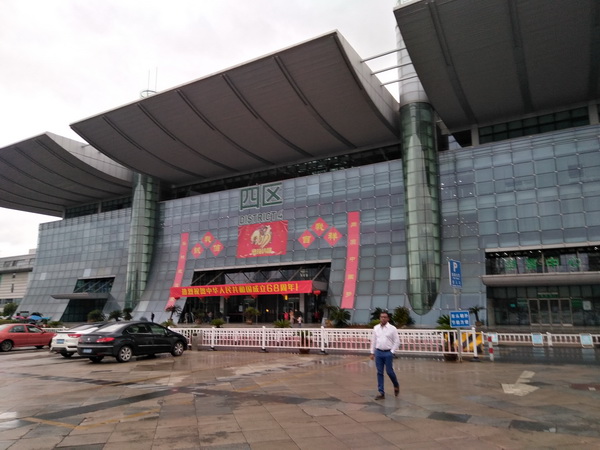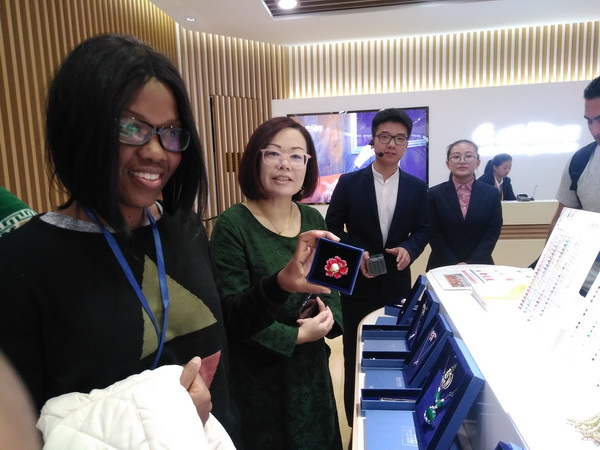


Alibaba began from a humble Hangzhou apartment with 18 workers but currently employs 50,000 people across the world. Photo by Kimeng Hilton
The Communist Party of China, CPC holds its 19th national congress on October 18, 2017 in the capital, Beijing, with an air of assurance and confidence. Party members will assemble to chart out the country’s development and political path for the next five years and even beyond. There is assurance because the party under the leadership and guidance of Xi Jinping, the General Secretary of the CPC Central Committee, has since the last congress five years ago steered the country to steady economic growth and increasing international clout.
Zhejiang’s superlative economic gains
One glaring example of the CPC’s successful political, economic and social stewardship is the southeastern coastal Zhejiang Province. With a population of 55.9 million people, the 2016 Gross Domestic Product, GDP of 710 billion US dollars was the first amongst all of China’s provinces and autonomous regions. Some 60 per cent of the amount came from the private sector that also provides over 90 per cent of provincial jobs.
Zhejiang eradicated poverty in 2015, five years ahead of the national target in 2020. The province’s total trade volume in 2016 was 326 billion US dollars or over 8 per cent of the national figure. Meanwhile, economic growth in the first half of 2017 stood at 8 per cent. On the other hand, Ningbo has been the biggest global commodity port for 8 years running.
Economic growth averaged 10 per cent in almost 40 years of reform and opening up; while per capita GDP is now at 12,784 US dollars. Similarly, rural Zhejiang incomes have been ranked the first in China for 31 straight years. Zhejiang’s exports in 2016 ranked 20th in the world, way ahead of several nations. Also, foreign enterprises invested 470 billion US dollars in 2016 as the province carried out business with 142 nations.
Perhaps, the most significant of Zhejiang’s milestones is the decision by America’s Boeing aircraft to set up a manufacturing base in the province, the first time the company did so outside the US. All these superlative gains only point to one conclusion - that Zhejiang Province can safely be described as China’s current economic powerhouse. This is the big provincial picture. At the local level, there is also much to show for Zhejiang’s meteoric development.
Alibaba blazes trail in e-commerce
Zhejiang is the home province of Jack Ma, founder of the renowned international online retail platform, Alibaba Group. From a humble beginning from his Hangzhou apartment in 1999 with 18 employees, Alibaba now employs 50,000 people across the world, 20,000 of them based in Zhejiang. Despite shutting down for some time in 2003 during the SARS virus outbreak, Alibaba staff continued working from home, strategizing how to make the company a global brand.
Today, the company is the world’s largest online retail platform with over 500 million active monthly users. Company officials say they plan to create 100 million jobs worldwide in the next 20 years, have 2 billion consumers and enhance technology research to boost healthcare, cloud computing, traffic flow in cities and the use of more efficient robots to move goods faster.
Dream Town for dreaming talents

Some 2,000 engineers have been trained in Dream Town in its two years of existence. Photo by Kimeng Hilton
Located to the west of the provincial capital, Hangzhou in the town of Cangqian, Dream Town has been dubbed “China’s Silicon Valley.” It is a technology incubator established in 2016. It is complete with dormitories, lecture rooms, offices, practicum space and full wifi Internet coverage. The science and technology city lies on 3 square kilometres. Some 10,600 startup enterprises work from there, while 8,000 people aged between 20 and 30 years are involved in startups in Dream Town.
In all, there are 46 incubators and about 800 projects being supported by the authorities, Jinwen Yao, a guide, said in Dream Town on October 13, 2017. Some of the young engineers in Dream Town are training in the design, manufacture and use of robots, and the production of television adverts, movie special effects, etc. So far, Dream Town has trained 2,000 engineers in two years of establishment. Some 521 venture projects have been introduced, while 1.537 billion RMB has been spent on project finance.
Yiwu, centre of retail trade

Yiwu City boasts the world's largest small commodity market. Photo Kimeng Hilton
After Guangzhou in Guangdong Province, Yiwu has the second largest African population in any Chinese city. According to local authorities, there are 760,000 registered local people in Yiwu, compared to 1.16 million foreigners, with about 3,000 being Africans. This mix has over the years facilitated people-to-people exchanges, intermarriages, mutual cultural understanding, tourism, foreign trade and investments. This is seen in the establishment by Zhejiang and its local governments of friendship city relations with 12 African nations. The Presidents of Uganda, Namibia and Sudan are amongst the city’s most prominent recent visitors.
One of Yiwu’s leading companies is Neoglory, which today counts amongst China’s 500 top companies. Founded in 1978, Neoglory began trading in jewelry before expanding to other sectors like real estate, trade, finance, investment, etc. On the other hand, Yiwu boasts the world’s largest retail market and is commonly referred to as the “world’s capital of small commodities.” The International Commerce and Trading City or retail market covers 6.4 square million metres.

From jewelry trade, Neoglory is today an international in other sectors like real estate, finance, invesment, etc. Photo by Kimeng Hilton
Yiwu’s GDP in 2016 reached 111.11 billion RMB, while exports were worth 222.9 billion RMB. Some 90,000 people visited the city last year, Sheng Qinping, Secretary General of Yiwu Committee of the CPC said. Meanwhile, exports to 50 African countries in 2016 stood at 7.67 billion US dollars.
Kimeng Hilton Ndukong, a contributor to People’s Daily Online, is Sub-Editor for World News with Cameroon Tribune bilingual daily newspaper in Cameroon. He is currently a 2017 China-Africa Press Centre, CAPC fellow.
 Fire brigade in Shanghai holds group wedding
Fire brigade in Shanghai holds group wedding Tourists enjoy ice sculptures in Datan Town, north China
Tourists enjoy ice sculptures in Datan Town, north China Sunset scenery of Dayan Pagoda in Xi'an
Sunset scenery of Dayan Pagoda in Xi'an Tourists have fun at scenic spot in Nanlong Town, NW China
Tourists have fun at scenic spot in Nanlong Town, NW China Harbin attracts tourists by making best use of ice in winter
Harbin attracts tourists by making best use of ice in winter In pics: FIS Alpine Ski Women's World Cup Slalom
In pics: FIS Alpine Ski Women's World Cup Slalom Black-necked cranes rest at reservoir in Lhunzhub County, Lhasa
Black-necked cranes rest at reservoir in Lhunzhub County, Lhasa China's FAST telescope will be available to foreign scientists in April
China's FAST telescope will be available to foreign scientists in April "She power" plays indispensable role in poverty alleviation
"She power" plays indispensable role in poverty alleviation Top 10 world news events of People's Daily in 2020
Top 10 world news events of People's Daily in 2020 Top 10 China news events of People's Daily in 2020
Top 10 China news events of People's Daily in 2020 Top 10 media buzzwords of 2020
Top 10 media buzzwords of 2020 Year-ender:10 major tourism stories of 2020
Year-ender:10 major tourism stories of 2020 No interference in Venezuelan issues
No interference in Venezuelan issues
 Biz prepares for trade spat
Biz prepares for trade spat
 Broadcasting Continent
Broadcasting Continent Australia wins Chinese CEOs as US loses
Australia wins Chinese CEOs as US loses